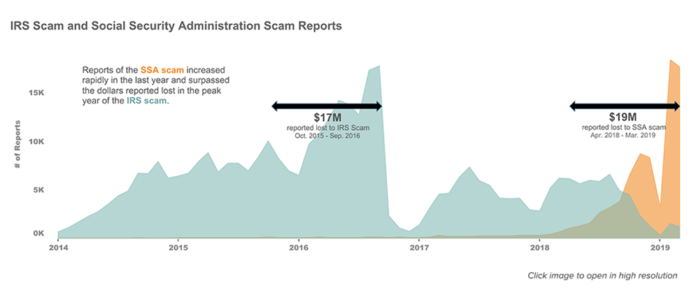By Reilin Lyu
Imagine yourself on a normal day. You’re walking to school, riding the bus, or sleeping in. All of a sudden, your phone begins ringing, the screen lighting up with a call from the New York Police Department, the phone number of which seems to originate from Brooklyn. You answer the call, thinking better of ignoring a call from the police. The man on the other end of the phone immediately begins speaking, telling you that you’re under a criminal investigation. Naturally, you’re shocked, but it gets worse.
Apparently, a car has been found in Texas, rented under your identity, filled with cash, drugs, and an address. The police raided the address found in the car, and discovered numerous offshore bank accounts with a history of transactions to areas riddled with human trafficking and terrorism. Sounds terrifying, right? Well, it’s a fraud – malicious extortionists on the other end of the phone posing as employees of government organizations to fearmonger you into forking over money to them so they can “resolve” the situation.
Nearly half of all American adults – 47 percent – have experienced this or a similar story as of 2020, according to an AARP survey. These frauds are known as Government Impostor Scams, and they are by no means new.
Consider this chart from the Federal Trade Commission, which details the damage done by two more well-known types of Government Impostor Scams – the SSA and IRS scams. Tens of millions of dollars have been extorted from victims by these two types of scams alone, which sounds unbelievable. People should be able to tell the difference, right?
Well, there are certain red flags you can look for to identify a scam, but the first step in preventing extortion is to maintain your composure. These impostors profit off of fear – it is their single most effective means of coercing you into paying them. Respond calmly, take note of the information they are unknowingly feeding you, and listen for telltale signs that break their authoritative facade. One of the most telling giveaways is if they ask you for a monetary transfer of any sort.
According to the NYPD, “Individuals will never be contacted by the NYPD, Social Security Administration or any Law Enforcement Agency and be asked to submit money or information over the phone. If contacted by anyone claiming to represent any such agency and asking for money, [you] should immediately hang up the phone” (nyc.gov). Even if the number calling you seems legitimate, it may not be. Scammers employ a tactic called “spoofing,” by which they take on a number which appears to represent an official organization.
Another sign is the caller’s eagerness to be done with the smoke and mirrors of their fabricated legal predicament, in hopes of being able to ask for payment or personal information sooner. For example, if a caller asks you if you know anything of the allegations being made, you would say no, clearly, because the situation does not exist. If the caller accepts that, for example by replying, “okay,” their willingness to accept a possible criminal’s word on their accused crimes will give away the caller’s lack of consideration for the purported criminal activity, making obvious the existence of an ulterior motive other than interrogating you.
This motive is, of course, money or personal information which they wish to extract from your fear. The key is to remain vigilant, not to panic, and to be able to differentiate a legitimate call and a scam. And if you take note of the right things, you just may save yourself a truckload of trouble.

